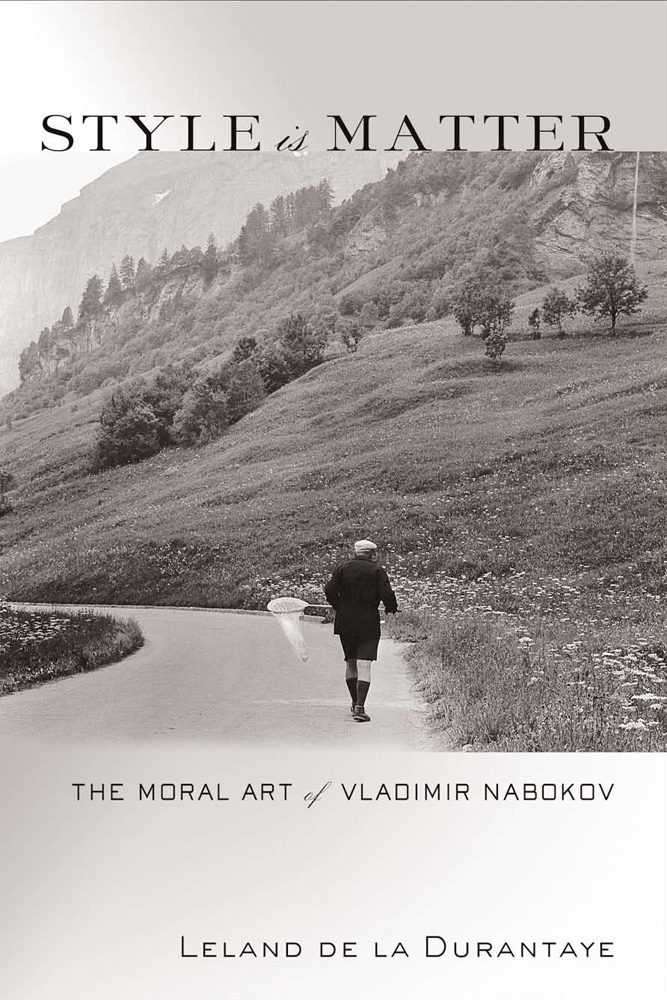Leland de la Durantaye
Professor
Literature Department
Claremont McKenna College

Style is Matter: The Moral Art of Vladimir Nabokov

—from Style is Matter
“Some of my characters are, no doubt, pretty beastly, but I really don’t care, they are outside my inner self like the mournful monsters of a cathedral façade—demons placed there merely to show that they have been booted out.”—Vladimir Nabokov, Strong Opinions
With this quote Leland de la Durantaye launches his elegant and incisive exploration of the ethics of art in the fiction of Vladimir Nabokov. Focusing on Lolita but also addressing other major works (especially Speak, Memory and Pale Fire), the author asks whether the work of this writer whom many find cruel contains a moral message and, if so, why that message is so artfully concealed. Style is Matter places Nabokov’s work once and for all into dialogue with some of the most basic issues concerning the ethics of writing and of reading itself.
De la Durantaye argues that Humbert’s narrative confession artfully seduces the reader into complicity with his dark fantasies and even darker acts until the very end, where he expresses his bitter regret for what he has done. In this sense, Lolita becomes a study in the danger of art, the artist’s responsibility to the real world, and the perils and pitfalls of reading itself. In addition to Nabokov’s fictions, de la Durantaye also draws on his nonfiction writings to explore Nabokov’s belief that all genuine art is deceptive—as is nature itself. Through de la Durantaye’s deft and compelling writing, we see that Nabokov learned valuable lessons in mimicry and camouflage from the intricate patterns of the butterflies he adored.
Reviews
Style Is Matter offers a subtle, reflective, and well-grounded exploration of Nabokov’s literary thought and practice from an ethical point of view—where ethics, as Nabokov himself would insist, cannot be divorced from style, but never lapses into mere formalism. Leland de la Durantaye scrutinizes Nabokov’s own often contradictory and flamboyant pronouncements on art, and combs the fiction both for theoretical claims and detailed examples of what Nabokov’s literary ethic looks like when it’s at work. This remarkable book is extremely well written, often witty, and informed throughout by a discreet intelligence and strong personal commitment to the material.
Michael Wood, Charles Barnwell Straut Class of 1923 Professor and Professor of Comparative Literature, Princeton University, author of The Magician’s Doubts: Nabokov and the Risks of Fiction